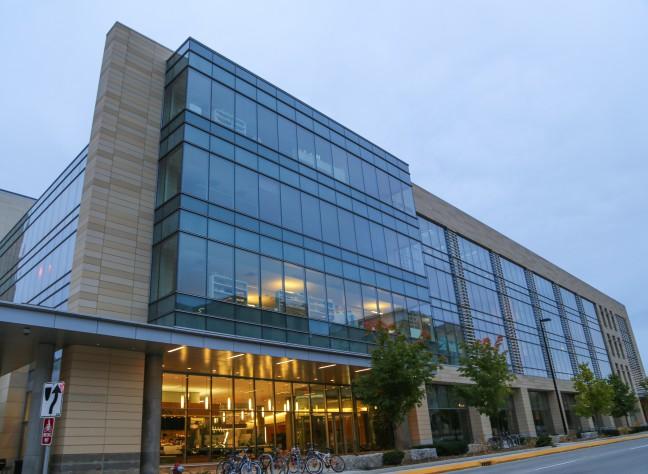Editor’s note: The Lab Report is a weekly series in The Badger Herald’s print edition where we take a deep dive into the (research) lives of students and professors outside the classroom.
Contributing to design elements in society, Schloss Lab at the University of Wisconsin is here to show us how the colors in the world around us have an impact on our daily lives.
The lab studies how people interpret visual features and how these interpretations can be used to improve design, undergraduate researcher Amanda Zhang said.
“Color is all around us, and a lot of people think it doesn’t really affect how you live life, but the research in our lab obviously shows that it does,” Zhang said. “If we can harness that unconscious perception of color, it can help us be so much more than we could be.”
The Schloss Lab studies how people use visual elements such as color, shape, size and texture to communicate. Through this research, UW Associate Professor Karen Schloss said the lab is trying to learn how the mind works and to use it to match expectations with visual features in design.
The Schloss Lab is trying to create general principles from specific applications in their research projects, then broaden them to apply to other situations as well. One way the lab is applying what they’ve learned about color perceptions is with waste bins.
Often, people associate certain colors with specific types of waste. By coordinating the colors of waste bins with perceptions people hold, Zhang said it can influence which bins people use.
“A lot of stuff that we’re doing right now can be contributed directly to design elements,” Zhang said. “Helping people read maps more efficiently and accurately designed facilities based around color, that would be more friendly to people.”
From a young age, Schloss found herself curious and interested in color, which led her to the research questions in her lab today. In her early career, she answered questions about color preferences — why people have color preferences, why they change and why they exist in the first place.
This led her to her current work in studying color and visual communication.
UW affiliates create Navajo words, hope to spark science communication
Schloss pointed to two key reasons for studying how people infer meaning from visual features. First, they can utilize this understanding to create more effective visual communication. Second, without intuitive color associations, certain designs could unintentionally confuse people by mismatching colors with their expectations.
“Hopefully, as people learn about our work they can see this extends to designing recycling bins, different types of maps, different kinds of graphs and so on,” Schloss said.
The COVID-19 pandemic means Zhang hasn’t been able to participate much in in-person research projects, but before the pandemic, she was working on a visual reasoning project and a virtual reality project.
The visual reasoning project is an ongoing study prompting subjects to identify fictitious aliens based on visual features, Zhang said.
Through her project that uses virtual reality, Zhang said she is studying if learning three-dimensional concepts can be better in a three or two-dimensional environment. This project guided subjects through a virtual rollercoaster ride to simulate how visual signals travel from the eyes to the brain.
The Lab Report: UW researchers eye neural circuits in retina to treat blindness
“Amanda really took the lead in data collection for those experiments which was a complicated protocol … and she did an excellent job of implementing protocol,” Schloss said.
Zhang began her journey in research as a freshman in the Undergraduate Research Scholars program. She studied in the Peer Relations Study Group with UW educational psychology Professor B. Bradford Brown, where she investigated social media and adolescents. She realized her interests dealt more with perception and psychology of vision in general.
The following summer she searched for a new home in a research lab, which led her to where she is today.
The Schloss Lab has space in both the Psychology Building — where they conduct computer-based experiments — and in the Wisconsin Institute for Discovery, where they run their virtual reality experiments.
Schloss said the lab aims to build a sense of community, with undergraduates working together to run experiments for the graduate students’ projects. Undergraduates also have the opportunity to lead their own projects.
“Undergraduates are the life force of the lab,” Schloss said. “They ask amazing questions that take research in new directions.”
Zhang joined the lab open to the idea of going into research in her career, but after seeing it from the inside, she realized it’s not a life for her. Still, she likes learning about developing ideas in the world. Now as a senior, Zhang will use her Neurobiology and Psychology double major to go to optometry school after graduation.
The Lab Report: Engineered bacteria convert waste product to biodegradable plastic
Both Zhang and Schloss stressed the importance of seeking out undergraduate research opportunities. The experiences gained in conducting undergraduate research are incredibly valuable to exploring future career paths.
“I think undergraduates are continually the future generation of sciences so they’re an essential part of our life,” Schloss said. “Just getting that research experience is kind of the backbone for a lot of future directions.”


















